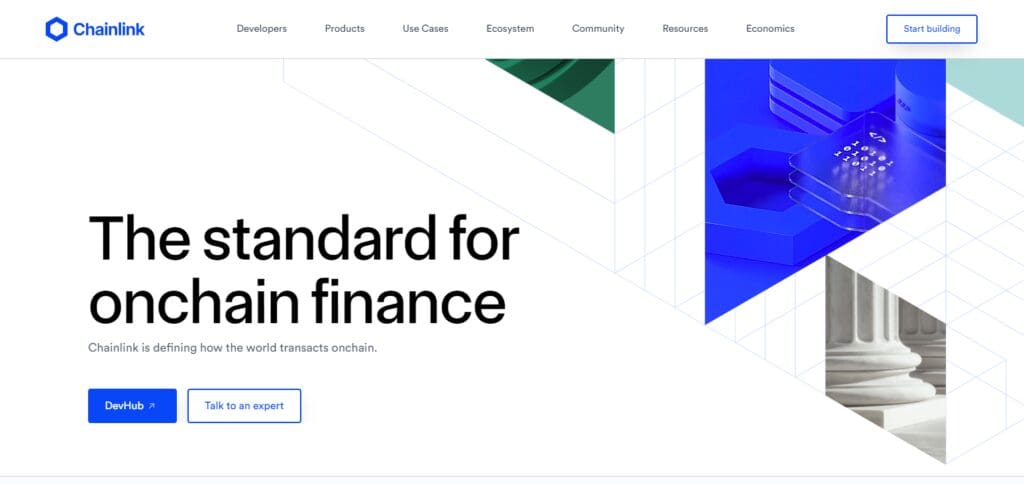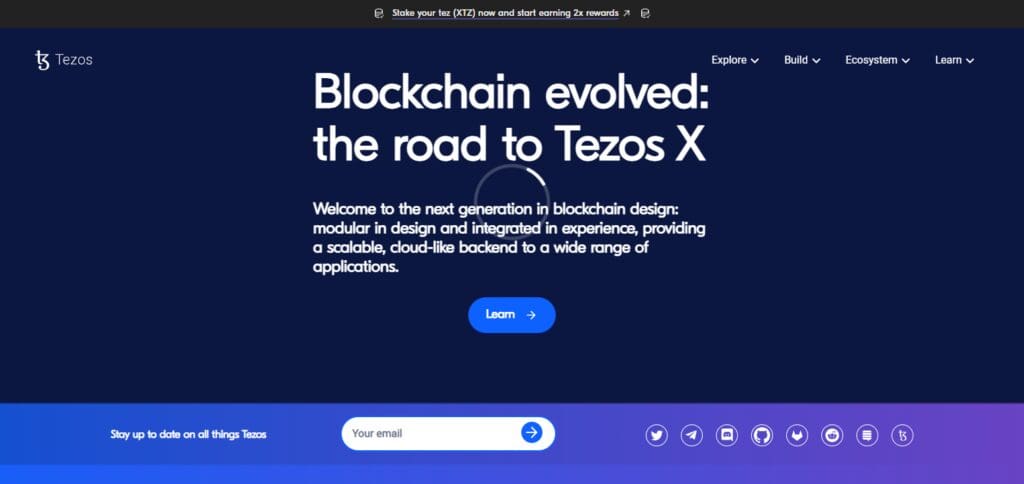In this article, I will discuss the Best Crypto For Tax Efficiency. With the help of this guide, you will be able to decrease your tax liabilities by strategically choosing the right investments.
It is essential to understand tax-minimizing strategies, especially with how the crypto market continues to evolve rapidly. It does not matter if you are an investor or a trader; by investing in the right cryptocurrency you will see a positive change in your tax burdens.
Here, I will discuss some of the best options such as Bitcoin and Ethereum whereas I will also mention some of their disadvantages in terms of tax efficiency.
| Cryptocurrency | Key Point |
|---|---|
| Bitcoin | The first cryptocurrency, acting as a store of value with a 21 million coin supply. |
| Ethereum | A decentralized platform for smart contracts and decentralized applications (dApps). |
| Cardano | A proof-of-stake blockchain focused on security, scalability, and sustainability. |
| Polkadot | A multi-chain network enabling interoperability between different blockchains. |
| Chainlink | A decentralized oracle network connecting real-world data to smart contracts. |
| Algorand | A scalable blockchain known for speed and low transaction fees, supporting dApps. |
| Tezos | A self-amending blockchain with a governance model for voting on upgrades. |
| Avalanche | A highly scalable blockchain with sub-second transaction finality for DeFi applications. |
| Uniswap | A decentralized exchange (DEX) enabling automated token swaps on Ethereum. |
1. Bitcoin
Bitcoin is the very first cryptocurrency to ever be created and is the most well known in the field. It works as a store of value as well as a currency.
Bitcoin, like most of the other currencies out there, is considered a capital assets by tax authorities and hence the tax implications may be different if held in the short term with that of a long term.

More precisely, if the asset is held for over a year it is considered a long term hold, otherwise it is taken as a short term hold. Long term holders are taxed at lower capital gain taxes which makes Bitcoin a tax efficient asset for longer time frame holders.
With the other hand, frequent traders or day traders on the other hand will be at a disadvantage as they will be taxed higher than the general average for short term capital gain tax.
Pros and Cons of Bitcoin
Pros:
- Store of Value: Referred to as “digital gold”, Bitcoin is regarded as a store of value.
- Decentralization: Advanced decentralization, reducing the risk of any central point of failure
- Security: Security of transactions through cryptographic encryption.
- Permissionless: Network is open to everyone to access and use.
- Potential for High Returns Historically, long-term investors are rewarded with solid returns.
Cons:
- Volatility: Movement of prices can be too extreme.
- Environmental Impact: Due to mining, there is a significant amount of energy use.
- Limited Acceptance: Its use as a mode of payment has not gained widespread acceptance.
- Speculative Nature: Often regarded as a value asset that is subject to speculation.
2. Ethereum
The second largest cryptocurrency in terms of market capitalization is ether. Ether is mostly employed for the decentralized apps (dapps) and smart contracts.
Just like bitcoin, ether too falls in the category of capital gains in taxation. Ether’s use cases such as Staking and DeFi Protocols

its Gas Fees may come under other tax considerations e.g. income tax on rewards, or interest earned from liquidity provision or through staking.
In many ways these intricacies where of the approaches Ethan remained tax efficient, albeit for long term investors.
Pros and Cons of Ethereum
Pros:
- Smart Contracts: Permits decentralized apps and smart contracts.
- Decentralization: Dependent on a decentralized system.
- Versatility: Can be applied in many functionalities aside from just serving as a currency.
- Active Development: Regularly upgraded and enhanced.
Cons:
- Scalability Issues: Has to deal with scalability problems in addition to having high gas fees.
- Environmental Impact: Due to proof of work consensus, it is energy consuming.
- Complexity: Hard to develop on and use.
3. Cardano
Sustaining all the necessary aspects, Cardano can be identified as a proof stake blockchain. Cardano users have a commendable tax efficiency, this is especially true when considering long term investors and staking rewards.

Since Cardano is not a proof of work system, it instead considers staking rewards as income subject to taxation.
This might not be a disadvantage however as taxation is a choice, and depending on which jurisdiction you are in the law might allow you to hold these rewards for a year before selling them for a longterm capital gains treatment. This significantly smoothens the path to tax efficient wealth growth.
Pros and Cons of Cardno
Pros:
- Research-Driven: The project is built with primary consideration of research and academic review.
- Energy Efficiency: Utilizes proof-of-stake, which is less resource intensive than proof-of-work.
- Scalability: Able to scale to accommodate high volumes of transactions.
- Security: Essential to safeguarding the system against various attacks.
Cons:
- Slow Development: Prolonged testing can slow down development and implementation of updates.
- Limited Adoption: Other platforms have higher adoption rates compared to this one.
- Complexity: This can also be difficult to comprehend and use.
4. Polkadot
Polkadot has a multi-chain framework which is built with the goal of having different blockchains communicate with one another.
One of the features of Polkadot is its ability to allow for staking, which is virtually passive income and is considered taxable income in most regions.

Furthermore, Polkadot allows investors to lock their DOT tokens for longer periods. This locking can work to an investor’s benefit in terms of tax efficiency.
Similar taxation might be applicable in the case of Cardano. DOT tokens which are competitively priced may be able to be taxed favorably if their holding period exceeds one year.
In the same vein, if held for over more than a year, Cardano might incur taxes in a similar manner.
Pros and Cons of Polkadot
Pros:
- Interoperability: Facilitates the movement of messages and value across diverse blockchains.
- Scalability: Able to scale to accommodate high volumes of transactions.
- Flexibility: Capable of working with multiple blockchain networks.
Cons:
- Complexity: Difficulties may arise while configuring and utilizing the system.
- Limited Adoption: Other platforms have higher adoption rates compared to this one.
- Security Concerns: Some level of risk in terms of security exists because of interoperability.
5. Chainlink
Chainlink is an oracle network that deploys smart contracts with actual physical data which has not changed. DeFi applications also make use of Chainlink extensively.
Chainlink tokens are branded as LINK tokens and are assessed for capital gains due taxes once the tokens are sold and turned into a profit.

In order to be more tax efficient, LINK tokens can be used for staking as this allows for earned income and has a chance of being deferred until users claim or sell the tokens.
There are many strategies an investor partaking in the purchase of LINK may benefit from, for example, one can hold onto it for a period exceeding one year and take advantage of the more appealing long term capital gains tax rates.
Pros and Cons of Chainlink
Pros:
- Decentralized Oracle Network: Enables smart contracts to access reliable information.
- Wide Adoption: Many projects and platforms rely on this.
- Security: Guarantees great reliability and security.
Cons:
- Centralization Risks: There are fears of centralization in some parts of the network.
- Complexity: Integrating and using it can be problematic.
- Cost: Chainlink services can be expensive to use.
6. Algorand
Algorand is an incredibly efficient blockchain that integrates low fees on their transactions. They allow staking rewards just like Solana and Cardano do, and it may incur taxation.

However, investors have the option to keep their rewards for a long time, thereby paying a smaller percentage of taxation on the capital gains if the rewards are sold after one year.
Additionally, their strategy of decentralization and enhancing scalability ensures that investors are able to effectively control their p portfolio while also ensuring a reduction in transactional cost, making it even more tax efficient.
Pros and Cons of Algorand
Pros:
- Saves Energy: Practically every industry that delivers a service or product relies on proof of stake mechanisms.
- Speed: High transaction throughput.
- Security: The emphasis on robust security.
Cons:
- Limited Adoption: All together, it does not have a wide base of users.
- Complexity: It can be quite complicated to learn and apply.
- Volatility: Once again, it may be said that prices are volatile.
7. Tezos
Tezos supports the decentralized application and blockchain ecosystems, and one of its noteworthy features is its self-written programmer.
It charges users to earn rewards on its unique proof of stake, which is great for those token holders who may be planning on making profit.

Additionally, Tezos allows for “baking” (its term for staking), and as is the case with Cardano, those who intend to be long-term holders may confer with more appealing taxation mechanisms after a year has passed since they sold their tokens.
People wishing to earn rewards without incurring a lot of taxable events frequently find the strategies made possible by Tezos’ emphasis on earning and governance quite tax-efficient.
Pros and Cons of Tezos
Pros:
- Self-Amending: There are no hard forks as the protocol has mechanisms for auto upgrading itself.
- Governance: The mechanism for decision-making involves all stakeholders within the network.
- Security: A high level of security and robustness is guaranteed to the system.
Cons:
- Complexity: It can be quite complicated to learn and apply.
- Limited Adoption: All together, it does not have a wide base of users now comparing to other available services.
- Volatility: Once again, it may be said that prices are volatile.
8. Avalanche
Avalanche is a cryptocurrency platform which rewards all participants through staking, however it is ordinary that income earned through Avalanches staking is heavily tax critical.
Such taxation can be avoided through the use of AVAX tokens over a year, similar to Bitcoin and Ethereum these tokens ensure users are able to save and ultimately spend less overall.

Making it easy to save taxes Avalanche simplifies and improves stakes and trades.
Moreover, the sub-second transaction finality that it allows for greatly also results in Avalanche being backed by a lot of investors and increasing the rate of investment due to the drop in inflation.
Pros and Cons of Avalanche
Pros:
- High Throughput: Has the capability to process many transactions per second.
- Interoperability: Enhances ability of different blockchain networks to communicate with one another
- Speed: Transactions are processed very quickly.
Cons:
- Complexity: Installing and using it can be difficult.
- Limited Adoption: All together, it does not have a wide base of users now comparing to other available services.
- Security Concerns: Due to the interoperability there may be security issues.
9. Uniswap
Uniswap lets its users trade ERC-20 tokens directly from their wallets which allows it to not be responsible for offering users staking rewards by itself, however liquidity providers do receive transaction fees for trading on the site.

These transaction fees again play an integral part within the Aave, however, unlike Aave liquidity providers are able to maximize their spending by trading tokens after a set period of time once out of the tax band.
The major differentiating factor for example from the Aave is that Uniswap never holds over any user account for a prolonged period of time.
Pros and Cons of Uniswap
Pros
- Trading Without Government Control: Users are able to trade without having the fear of government or any other central authority controlling them. This is highly attractive for a lot of users.
- Passive Income: Users who provide liquidity for various pools can earn fees which can potentially become a passive income stream for them.
- Access to New Market Listings: With uniswap users are able to trade tokens that are newly listed and may not be available on centralized exchanges.
Cons
- Additional Fees: Since it’s built on the Ethereum platform, Uniswap can incur high transaction fees especially when more users are on the network.
- Value Loss for LPs: Liquidity Providers can face possible value loss even when they are not using their assets due to price changes in trading pairs.
- Lack of Compliance and Regulations: It may face issues with the law in this regard. This poses a threat to users who want to do trading via it as well.
Conclusion
Selecting the most tax-efficient cryptocurrency will depend on the kind of trader or investor profile you have and the aims you want to accomplish.
We recommend investing in Bitcoin and Ethereum as they attract the lowest capital gains tax after a long holding period.
Staking Cardano, Polkadot, and Tezos tokens or transacting on Avalanche and Algorand networks have little taxes since they charge only minimal fees for speedy transactions.
Uniswap is one of the solutions to help decentralize these platforms, offers attractive tax benefits to liquidity providers, although efficiency may be diminished by gas costs.
In order to increase tax efficiency, you should consult a tax expert who can help you deal with the difficult problems of crypto taxation and spread across cryptos which create maximum tax efficiency with your investment plan.










